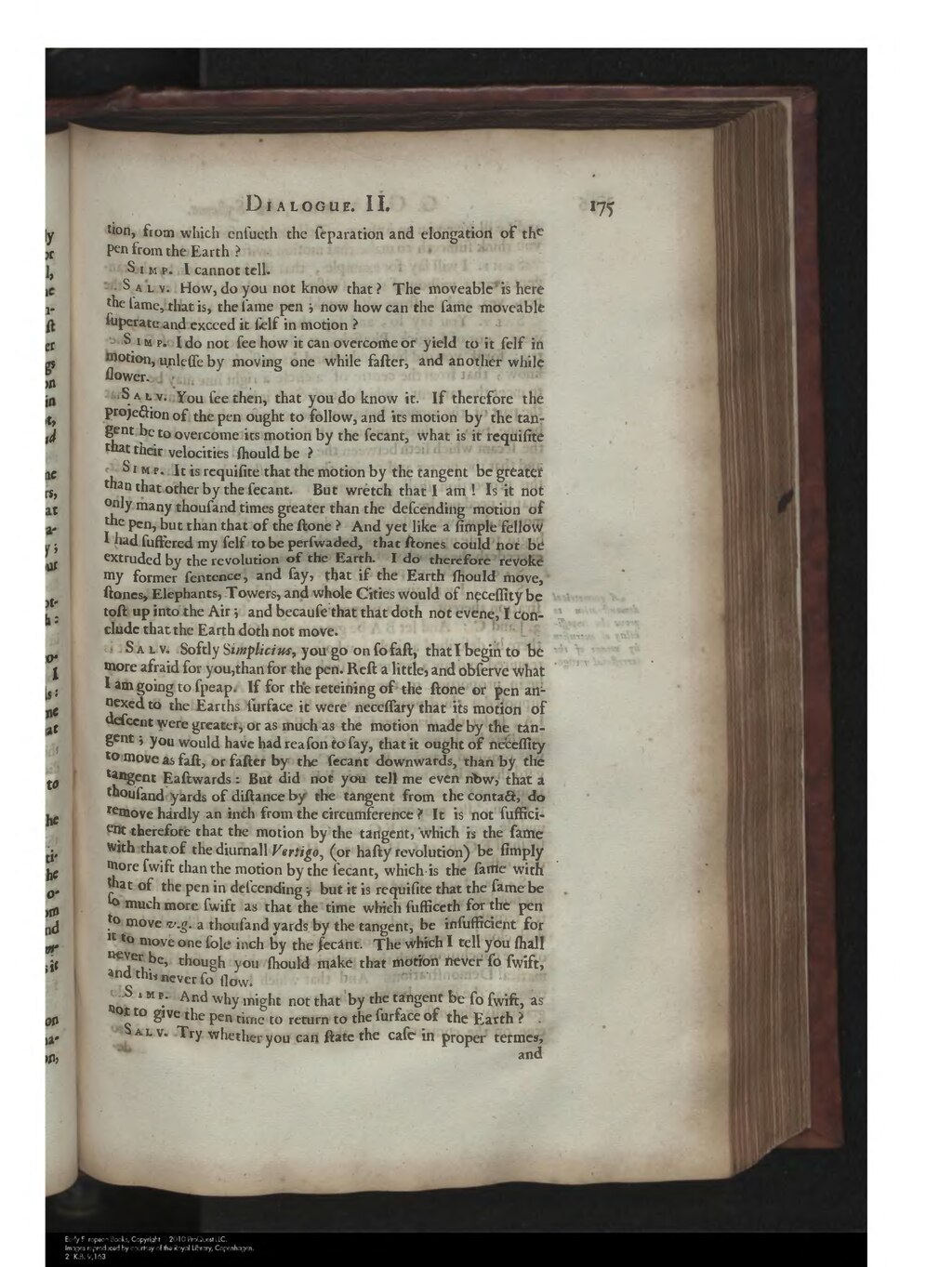Simpl.I said so, and also confesse the rest: and do now plainly understand that the stone will not separate from the Earth, for that its recession in the beginning would be such, and so small, that it is a thousand times exceeded by the inclination which the stone hath to move towards the centre of the Earth, which centre in this case is also the centre of the wheel. And indeed it must be confessed that the stones, the living creatures, and the other grave bodies cannot be extruded; but here again the lighter things beget in me a new doubt, they having but a very weak propension of descent towards the centre; so that there being wanting in them that faculty of withdrawing from the superficies, I see not, but that they may be extruded; and you know the rule, that ad destruendum sufficit unum.
Savl.We will also give you satisfaction in this. Tell me therefore in the first place, what you understand by light matters, that is, whether you thereby mean things really so light, as that they go upwards, or else not absolutely light, but of so small gravity, that though they descend downwards, it is but very slowly; for if you mean the absolutely light, I will be readier than your self to admit their extrusion.
Simpl.I speak of the other sort, such as are feathers, wool, cotton, and the like; to lift up which every small force sufficeth: yet neverthelesse we see they rest on the Earth very quietly.
Salv.This pen, as it hath a natural propension to descend towards the superficies of the Earth, though it be very small, yet I must tell you that it sufficeth to keep it from mounting upwards: and this again is not unknown to you your self; therefore tell me if the pen were extruded by the Vertigo of the Earth, by what line would it move?
Simpl.By the tangent in the point of separation.
Salv.And when it should be to return, and re-unite it self to the Earth, by what line would it then move?
Simpl.By that which goeth from it to the centre of the Earth.
Salv.So then here falls under our consideration two motions; one the motion of projection, which beginneth from the point of contact, and proceedeth along the tangent; and the other the motion of inclination downwards, which beginneth from the project it self, and goeth by the secant towards the centre; and if you desire that the projection follow, it is necessary that the impetus by the tangent overcome the inclination by the secant: is it not so?
Simpl.So it seemeth to me.
Salv.But what is it that you think necessary in the motion of the projicient, to make that it may prevail over that inclina-tion,
